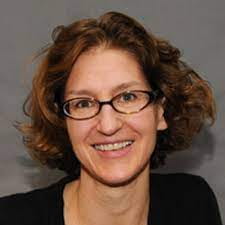Pam Nadash calls it “pure happenstance” that she landed as a faculty member in the UMass Boston gerontology department. But her career in nonprofits and public policy—combined with a PhD in public health and political science and her predilection for writing, editing, and research—built a logical path to her academic role. Nadash worked in England for a number of years early in her career. When she returned to the U.S. she worked for the National Council on Aging, the Visiting Nurse Service of New York’s Center for Home Care Policy and Research, and Thomson Medstat.
Since joining the faculty in 2008, Nadash has focused much of her research on the “basic question of how we support older people in the community.” Her approach includes a global perspective, writing papers on long-term care systems in countries such as Germany and France. “No country has figured it out perfectly, and every country is worried about the growing numbers of older adults,” Nadash says. “The biggest difference in the U.S. is that we don’t have a universal system for supporting LTSS (long term services and supports). People spend a lot of money on care and end up impoverished. They don’t want to think about it and they don’t plan for it, or they simply don’t have the ability to save any extra money for care — it’s just not feasible for them. I don’t think LTSS is just an individual’s responsibility.”
She recently completed a large-scale study, “Building a National Strategy to Support Family Caregivers,” along with UMass Boston colleague Marc Cohen, PhD, and Eileen Tell, MPH, a Gerontology Institute fellow. The report supports the federal Recognize, Assist, Include, Support & Engage (RAISE) Family Caregivers Act by summarizing a year’s worth of strategy sessions, focus groups, and interviews with representatives of more than 100 organizations. “The scope of interviews is enormous. We have a tremendous amount of data,” she says.
The focus groups took place in the summer of 2020, in the midst of the COVID-19 pandemic and anti-racism protests following George Floyd’s brutal murder. “We had to take a moment to acknowledge all that was going on,” Nadash remembers of conducting the sessions, which were already planned to take place online because family caregivers have a hard time leaving their homes. “As an icebreaker we asked, ‘What’s the silver lining of the pandemic for you?’ Many people told us, ‘I can work from home now, so things are much easier. My employer is so much more accepting of my situation.’ Employers became a little more respectful of families’ needs.”
Working with the data, Nadash will focus on what workplaces can do to support family caregivers. “The topic is really ripe for exploring. And this really is the moment. Employers are trying to attract and hire people, so one of the things they can say is they are a ‘caregiver friendly workplace.’ That’s a step beyond ‘family friendly,’ which tends to be only about parenting.”
Nadash is also working on a paper about the Build Back Better Act. The ambitious initial proposal from the Biden administration included plans to expand access to home and community-based services—basically all forms of care other than nursing homes. But the plan has been scaled back dramatically in hopes of getting Congress to pass it.
“COVID made people much more aware of these issues,” Nadash says. President Biden has also been pushing issues around the quality of care at nursing homes. The pandemic mortality rates highlighted the issue, “but there’s been plenty of industry pushback on things like minimum staffing requirements.”
Over the years, Nadash has watched interest in aging issues grow, personally and professionally. She jokes that her fellow doctoral students’ dissertations on topics like sexuality and drug use seemed far more exciting than her work with older people. Now she hears from friends whose parents or in-laws have illnesses like Parkinson’s and dementia and they’re realizing how terrible the systems for supporting these people are.
“We keep saying there’s going to be a tipping point where the personal becomes political,” she says. Public policy work takes patience, she acknowledges, but the spotlight shone by COVID on LTSS needs should spur action. “If not now, I don’t know when.”


Leave a Reply